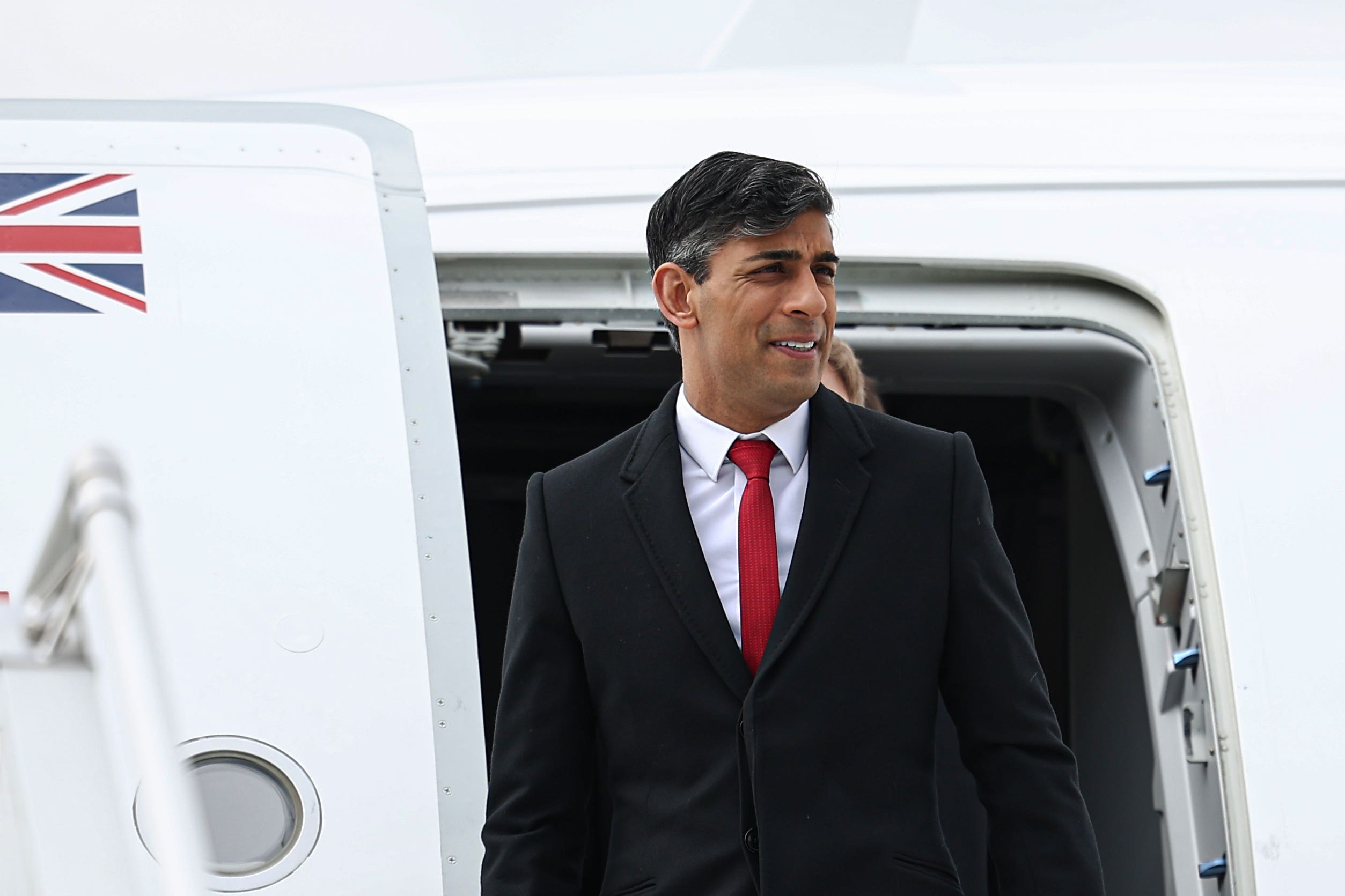PM says investments in weapons companies meet ethical criteria
Rishi Sunak said the Government will seek to incentivise private sector investment by stating that defence investment counts towards ESG assessments.

Private sector investment in weapons companies counts towards “ethical” environmental, social and governance (ESG) criteria, Rishi Sunak has said.
The Prime Minister said the world is “the most dangerous it has been” since the end of the Cold War as he promised an extra £75 billion in defence spending by 2030.
During a speech at a military base in Warsaw, Poland, he promised a further £10 billion over the next 10 years to ensure the military does not run out of ammunition and missiles as the UK draws lessons from the war in Ukraine.
There is nothing more ethical than defending our way of life from those who threaten it
But Mr Sunak said the Government will also seek to incentivise companies to invest in weapons by stating that it counts towards ESG criteria – which involves considerations around how a firm manages its impact on people and the planet.
The Prime Minister said: “To encourage private sector investment into defence production, I can also announce today that we’re going to put beyond doubt that defence investment does count towards environment, social and governance assessments.
“There is nothing more ethical than defending our way of life from those who threaten it.
“Now all of this will put us at the forefront of the global defence industry, allow us to hugely ramp up defence production and give our armed forces the capability they need to keep us safe.”
The comments coincided with a joint statement from the Treasury and the Investment Association, the trade body that represents UK investment managers, declaring that defence investment is “compatible with ESG considerations”.
“Investing in defence companies contributes to our national security, defends the civil liberties we all enjoy, while delivering long-term returns for pensions funds and retail investors,” the online statement said.
Investing in good, high-quality, well-run defence companies is compatible with ESG considerations as long-term sustainable investment is about helping all sectors and all companies in the economy succeed
“That is why the UK’s world leading investment management industry supports our defence sector, with the Investment Association’s members having invested £35 billion in UK defence companies.
“Investing in good, high-quality, well-run defence companies is compatible with ESG considerations as long-term sustainable investment is about helping all sectors and all companies in the economy succeed.”
In recent months, ministers have repeatedly expressed concern over defence firms being excluded from access to capital due to ESG criteria.
Defence Secretary Grant Shapps has spoken out against an investment culture guided by ESG policies that exclude the sector.
In a post on X, formerly Twitter, last year, Mr Shapps said: “It is very wrong for woke fund managers to imagine they’re being principled by de-funding our defence sector due to so-called ethical investment rules.
“In fact, we have a moral imperative to invest in defence because failing to do so would surrender our nation’s protection.”
In September, defence minister Baroness Goldie also said defence firms’ exclusion from access to debt and equity capital “threatens an important part of the economy” and “threatens to increase the cost of procurement, diverting taxpayers’ money away from other defence spending and from public services”.
Bookmark popover
Removed from bookmarks